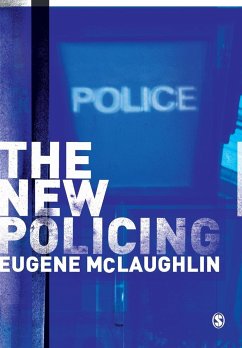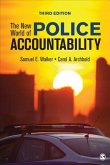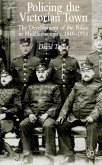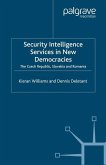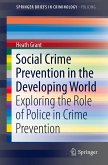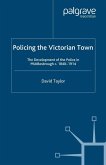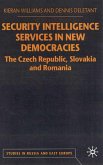The New Policing provides a comprehensive introduction to the critical issues confronting policing today. It incorporates an overview of traditional approaches to the study of the police with a discussion of current perspectives. The book goes on to examine key themes, including:
-the core purpose of contemporary policework;
-the reconfiguration of police culture;
-organisational issues and dilemmas currently confronting the police;
-the managerial reforms and professional; innovations that have been implemented in recent years;
-the future of policing, security and crime control.
In offering this discussion of the nature and role of the police, The New Policing illustrates the need to re-examine and re-think the theoretical perspectives that have constituted policing studies. Examining evidence from the United Kingdom, the United States and other western societies, the book promotes and enables an understanding of the cultural and symbolic significance of policing in society.
This ground-breaking text has been constructed to ensure that it touches on all the key issues that any course on police and policing will cover. It is an essential purchase for all students of policing and criminal justice, and academics and professionals working in this field.
-the core purpose of contemporary policework;
-the reconfiguration of police culture;
-organisational issues and dilemmas currently confronting the police;
-the managerial reforms and professional; innovations that have been implemented in recent years;
-the future of policing, security and crime control.
In offering this discussion of the nature and role of the police, The New Policing illustrates the need to re-examine and re-think the theoretical perspectives that have constituted policing studies. Examining evidence from the United Kingdom, the United States and other western societies, the book promotes and enables an understanding of the cultural and symbolic significance of policing in society.
This ground-breaking text has been constructed to ensure that it touches on all the key issues that any course on police and policing will cover. It is an essential purchase for all students of policing and criminal justice, and academics and professionals working in this field.
'A lucid, comprehensive and stimulating state-of-the-art analysis of the bewilderingly complex contemporary changes in policing. This will be a standard resource for students and scholars of policing for a long time to come.' -
Robert Reiner, Professor of Criminology
London School of Economics and Political Science
'Highly original, The New Policing is a significant contribution whose implications extend well beyond the British context and reflect on contemporary policing across the English-speaking world.' -
Pat O'Malley
Canada Research Chair in Criminology and Criminal Justice, Carleton University, Canada
'Deeply informed, penetrating, challenging and readable. Eugene McLaughlin analyses 'the state we're in' with respect to policing' -
P.A.J. Waddington, Professor of Political Sociology
University of Reading, UK
'The landscape of police and policing is rapidly changing. McLaughlin locates this change in the media imagery of policing and in the very real fragmented, global context of contemporary policing. When I got to the end, I wanted the debate to continue. This book is valuable in taking our discussions about policing and policing from a clear documentation of how much has changed in policing England and Wales in the last 20 years.' -
Elizabeth Stanko
Robert Reiner, Professor of Criminology
London School of Economics and Political Science
'Highly original, The New Policing is a significant contribution whose implications extend well beyond the British context and reflect on contemporary policing across the English-speaking world.' -
Pat O'Malley
Canada Research Chair in Criminology and Criminal Justice, Carleton University, Canada
'Deeply informed, penetrating, challenging and readable. Eugene McLaughlin analyses 'the state we're in' with respect to policing' -
P.A.J. Waddington, Professor of Political Sociology
University of Reading, UK
'The landscape of police and policing is rapidly changing. McLaughlin locates this change in the media imagery of policing and in the very real fragmented, global context of contemporary policing. When I got to the end, I wanted the debate to continue. This book is valuable in taking our discussions about policing and policing from a clear documentation of how much has changed in policing England and Wales in the last 20 years.' -
Elizabeth Stanko

